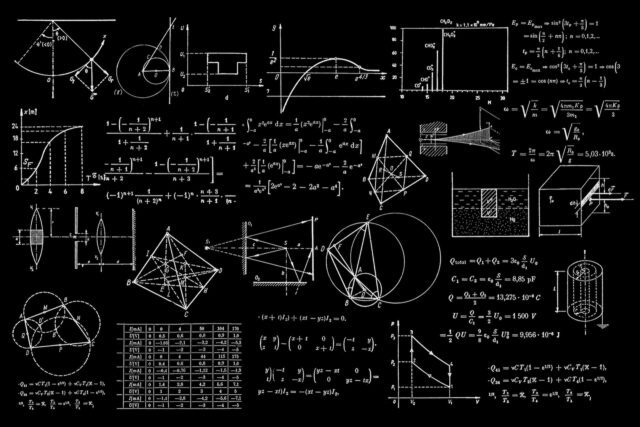Practical Quantum App Development in 2024
The technology of quantum computing (QC) promises countless fresh possibilities for application development and most other IT domains. But the question remains: is there a practical quantum app development going on in 2024?
In the year 2020, the global quantum computing industry- including the quantum apps market- was valued at a substantial $320 million.
Projections from the market indicate that this impressive figure is expected to skyrocket to $830 million by the year 2024, exhibiting a projected Compound Annual Growth Rate (CAGR) of 27%.
In short, quantum app development refers to the integration of quantum computing into the fundamental processing and mobile app database of a certain platform. The goal is to make app development easier and more efficient.
Unlike traditional computers that rely on the binary system encompassing “0” and “1” values, quantum computing harnesses the power of “qubits” and the principles of quantum mechanics.
In comparison to their conventional and classical counterparts, quantum apps possess the remarkable ability to rapidly tackle highly complicated computations.
Hence, businesses are progressively expressing their interest in incorporating quantum computing capabilities into their mobile app development and other functions.
Quantum App Development

Quantum computing is grounded in the profound principles of quantum mechanics and exhibits an exceptional ability to execute computations at a swifter pace when compared with its traditional computing counterpart.
Rather than relying on conventional bits to store and process data, quantum computers harness the potential of qubits, which are the units capable of existing in multiple states simultaneously.
This extraordinary attribute empowers the performance of myriad calculations in parallel and results in unprecedented computational efficiency.
The process of developing applications that leverage the benefits of quantum computing entails the seamless integration of awesome technology into the very core processing and database of the platform.
Consequently, applications that employ this advanced computing paradigm exhibit remarkable adequacy for expeditiously resolving complex computations, effectively capturing the attention and enthusiasm of businesses eager to incorporate this technology into their own applications.
After all, the far-reaching ramifications of this technology are expected to extend to the domains of artificial intelligence, banking, and cybersecurity applications. The long-term impact and transformative potential of quantum computing in these realms are perceived as both substantial and highly promising.
A Map for a Practical Quantum App Development
For developers, keeping track of the latest technologies and tools in the market is a very important practice. Failure to stay informed in this ever-evolving landscape can lead to a downturn in one’s career trajectory.
As quantum development for applications emerges as a subject of interest, it becomes critical to familiarize oneself with its fundamental tenets.
Quantum development finds its roots in the basic principles of quantum computing, a paradigm that has demonstrated its role in efficiently processing extensive datasets.
Despite the growing prominence of quantum app development, securing the services of app development firms that can truly handle such projects remains a challenge.
Understandably, most app developers continue to find solace in the familiar territory of traditional app development methodologies due to the “impracticality” of quantum development.
Although Pathon is a key programming language for developing quantum applications, it’s still unclear how to learn how to master quantum development and move forward with practical apps.
Nevertheless, as the significance of quantum technology arises on the horizon, many of these companies have started explorations into its application possibilities.
Among the prominent players venturing into this domain are industry giants such as Microsoft, Google Al Quantum, IBM, Intel, and Alibaba Quantum Lab.
For instance, IBM has even taken a very favorable initiative by giving developers the initial opportunity to access quantum computing capabilities for free.
App developers and companies can start exploring IBM offers and services to reserve a position for themselves in this upcoming, hot domain.
According to prominent commentators and developers, there are different practical steps to make an app using the q-engine framework, which encompasses the finest practices and an overarching approach to implement a quantum back end specifically designed for utilization with mobile devices.
The Steps of Practical Quantum App Development
In essence, the q-engine framework executes simple operations on the local CPU before delegating the quantum operations to the cloud.
When working with Qiskit, it’s highly recommended to use the Anaconda distribution of Python as it offers optimal compatibility and functionality. At the very minimum, Python3 must be employed to ensure smooth development.
If you are utilizing Android Studio as your development environment, it might be better for you to install the Python plugin to facilitate the integration of Python into your Android projects. The process entails the following steps:
- You must first install Chaquopy, which serves as a plugin designed for the standard Android build system Gradle.
- Within the build script block of your project, attach the Chaquopy Maven repository and its corresponding dependency to the existing list of repositories and dependencies.
- Apply the Chaquopy plugin at the top of the file, positioned after the Android plugin declaration.
- Prior to building your application with Gradle, you need to pre-define the Application Binary Interface (ABI) to ensure compatibility. Guidance from Google mandates that all new applications adhere to the ARM64 architecture.
- Configure the Python executable by utilizing the “buildPython” setting.
- Subsequently, you must define the pip dependencies required by your Python script, specifying the necessary packages and versions.
- Create a dedicated Python directory within your main project directory.
- Within this newly created directory, you can house your Python scripts, including the quantum dice app script titled “qengine.py.”
Types of Practical Quantum App Development
In practice, quantum app development involves two main types:
Quantum App Development
Quantum app development represents a specialized paradigm in which mobile applications harness the immense capabilities of quantum machines. This transformative process begins by constructing robust platforms and app databases.
Quantum application development empowers users to transcend conventional limitations and unlock new frontiers. Various industries, including cybersecurity, fintech, healthcare, e-commerce, and more, can leverage the boundless potential offered by quantum app development.
Quantum Computing
This revolutionary technology enables us to explore a vast array of states beyond the capabilities of the casual binary system. The ability of a quantum computer is measured in quantum bits known as “qubits”, which offer a remarkable advantage over conventional computers in terms of encryptions and other areas.
Drawbacks of Quantum App Development

The mobile app development industry is in a constant state of evolution as new technologies- such as quantum mechanics- are ushering in innovative benefits and solutions for app development.
However, before moving forward on the journey of developing a mobile app for your business using quantum technology, it’s better to consider several challenges that lie ahead. Here are the key points:
Rare Experts
As quantum computing is still relatively new in the mobile app development industry, there is an increasing shortage of experts in quantum programming.
Obviously, there is a pressing need for more professionals with expertise in quantum technology to guide and assist in building mobile apps with newer, innovative capabilities.
Fragmentation & Low Performance
The absence of standardization in the quantum computing industry has resulted in fragmentation within the mobile app development domain.
Alongside fragmentation, performance remains a crucial concern that needs to be addressed.
The performance of quantum computers is still striving to compete with classical computers, primarily due to challenges in optimizing them effectively for mobile application development.
Increased Complexity
The algorithms and programming required to harness quantum programs in app development are exceedingly complex and hard to grasp by junior developers.
Besides, there complexity of cloud computing algorithms and programming poses a significant barrier for app developers seeking to enhance their applications with quantum computing.
Security Concerns
Quantum programming possesses the ability to break existing security protocols, including encryption methods.
The potential for security breaches via cloud computing raises significant challenges for app developers in ensuring the protection and confidentiality of user data.
The Bottom Line
The extraordinary processing capabilities of quantum computers enable them to handle larger volumes of data at an accelerated pace compared to their traditional counterparts, thanks to their intricate calculations and operations.
This remarkable advantage has prompted the emergence of numerous quantum app development companies in the industry. However, the practicality of quantum computation is still debatable.
At Denarjes, we try to keep our partners and clients ahead of the competition by providing them with new talent that understands and can utilize the quantum world. You can reach us right now to learn more about our IT solutions and services.
Frequently Asked Questions
Are Quantum Computers Practical Yet?
Quantum computers aren’t yet practical for general use despite decades of constant development.
Who Is Leading in Quantum Computing?
Large high-tech corporations- such as IBM and Google- are leading the current wave of quantum computers and applications.
What Practical Applications Are There for Quantum Computing?
Quantum computing has different practical applications in different areas, including cybersecurity, manufacturing, finance, and research.
What Is Practical Application of Quantum Theory?
The practical application of quantum theory manifests in different domains, such as superconductors, advanced imaging techniques, quantum computing, and lasers.
How Hard Is Quantum Physics?
Since the quantum world doesn’t obey classical laws and common sense, quantum physics has been known as a hard topic, even for the founding fathers of quantum mechanics.
Which Technology Is Making Quantum?
The technology that leads to clear quantum applications is the technology of quantum computing.

